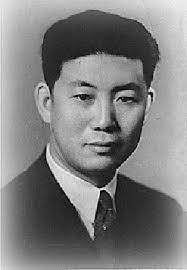Sheng Shih-ts'ai (1895-), military adventurer from Manchuria who seized power in Sinkiang in 1933 and ruled that province for nine years with Soviet aid. In 1943 he switched allegiance to the Chinese Nationalists, who, however, dislodged him from his seat of power in 1944. The Kaiyuan district of Liaoning in southern Manchuria was the birthplace […]





